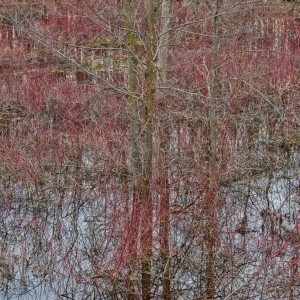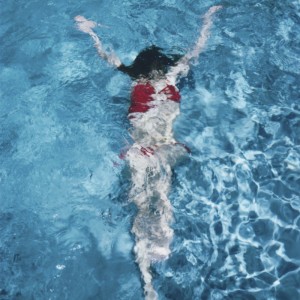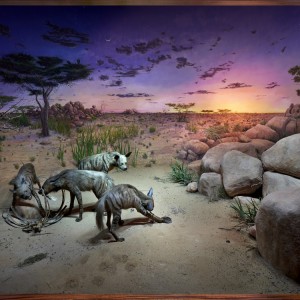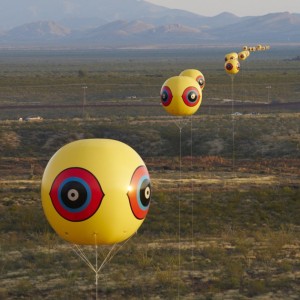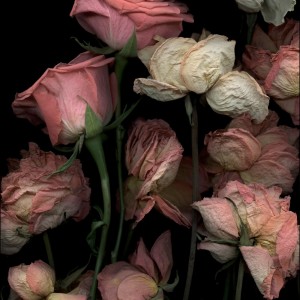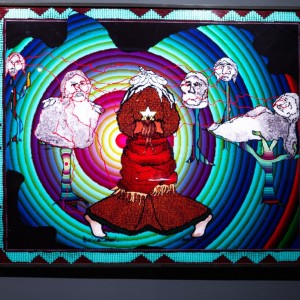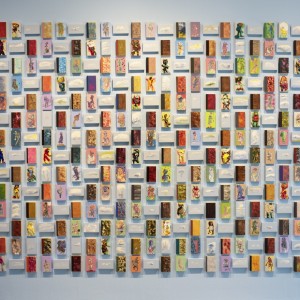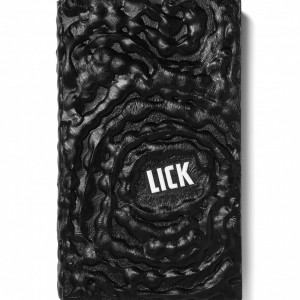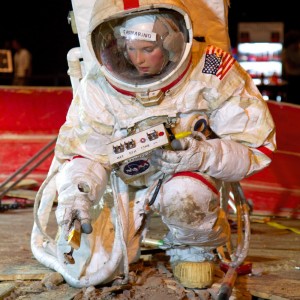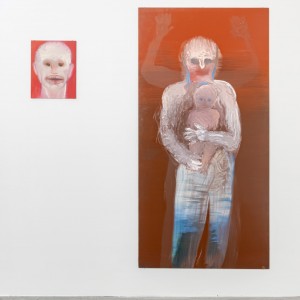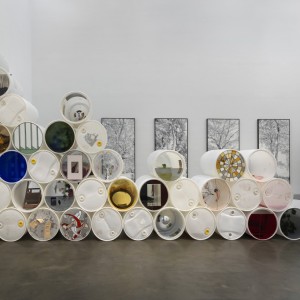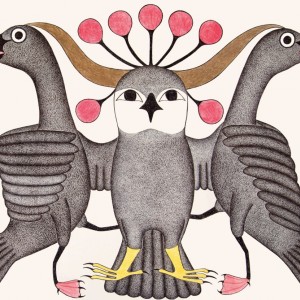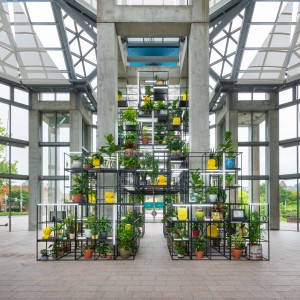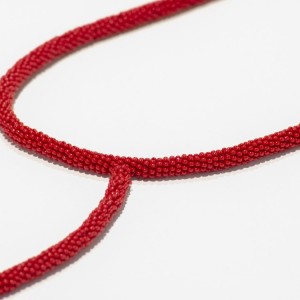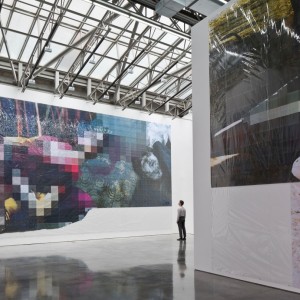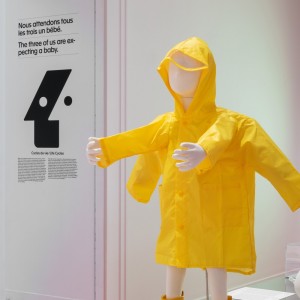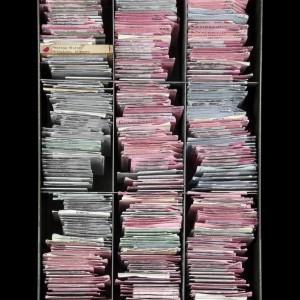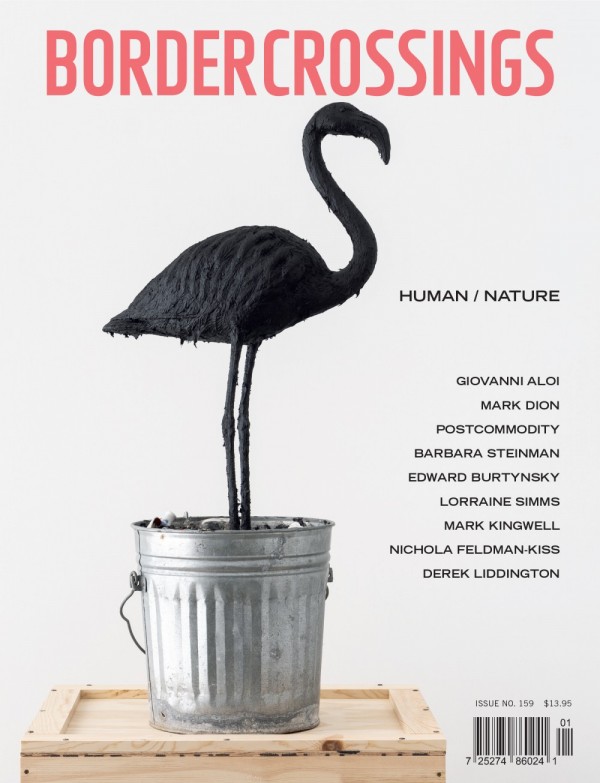
May 2022
#159
We are imperilled through our greed and lack of attention. We have separated ourselves from the full spectrum of the natural world, establishing, in our arrogance, a hierarchy that has placed us at the top instead of as part of a continuum of plants, animals, birds, insects, streams and fishes that are the world.
For the well-being of all, can we re-enter the dance, can we re-engage with the grasses as only one of multitudes and properly value the remarkable phenomenon of the honey bee? Can we partake and not consume, can we build a shelter that keeps us warm, where we can welcome friends and not sequester it as a financial hedge against the future?
In this issue of Border Crossings the conversation begins with Giovanni Aloi, a writer and curator whose subject is nature and its representation in art. He teaches at the School of the Art Institute of Chicago and can be teacher to us all. The awe and spectacle of natural history dioramas, the currently contested place of taxidermy in art are at the core of his engagement.
Artist Mark Dion has, for four decades researched and produced work in what could be described as the field of animal ontology. In the interview in this issue he speaks about the range of his art and his newest work, titled the “Theatre of Extinction”. Grim entertainment plays out in that theatre, tempered always by his application of wry humour.
The interdisciplinary Indigenous art collective Postcommodity—Cristósbal Martinez and Kade L Twist—are unswerving in their insistence that we read the made world around us through a post-colonial lens. We won’t be proud of the damage we’ve done and their art installations are stunning carriers of this evidence.
Two Portfolios in this issue speak to human nature. One is the ephemeral graphite drawings by Lorraine Simms of the shadows of the bones of animals extant and extinct, displayed in the American Museum of Natural History. The other is the heartbreakingly lovely photographic portraits by Barbara Steinman of roses as they fade.
Philosopher Mark Kingwell, in his astute and beguiling essay, “Nature and Normativity” reminds us of our ready fallibility in asserting an exclusive status. He writes,” Even creativity is not subject to human monopoly; primates can paint, and algorithms can compose music.”
In this issue where the subject is insoluble, entwined human nature, look for: Edward Burtynsky’s startling and lyric photographs from his series, “Natural Order”; nichola feldman-kiss’s bodies of work; Stephen Horne’s investigation of art as breath; Barry Schwabsky’s column on new photographers’ books; Jacques-Louis David’s political works considered by David Carrier; Buffy Sainte-Marie; Rashid Johnson; Thomas Hirschhorn; Derek Liddington; Alvin Luong; documentary filmmaker Jennifer Baichwal’s “ Into the Weeds: Dewayne “Lee” Johnson vs. Monsanto Company” and very many others.
Buy NowTable of Contents
-
Bordernotes
Sleepy Time with Henri Michaux -
Borderviews
The Art of Nature: Edward Burtynsky’s “Natural Order” -
Bordercolumn
Weed Killer Into the Weeds: Dewayne “Lee” Johnson vs. Monsanto Company directed and written by Jennifer Baichwal -
Picture Library
Barry Schwabsky’s PictureLibrary: Changes of Focus Janet Sternburg, Teju Cole, Mark Peckmezian, Charles Johnstone -
Interviews
Nature’s Exuberance Uncentring the Anthropocentric An Interview with Giovanni Aloi - Collecting Thoughts Mark Dion’s Celebratory Critique
- bodies of work an interview with nichola feldman-kiss
- Postcommodity Tells Time an interview with Kade L Twist and Cristóbal Martínez
-
Articles
Art as Breath / Artist as Breather - Derek Liddington: “The trees weep…”
-
Portfolios
Shadowland - Barbara Steinman: Keeping Time Introduction by Zöe Tousignant
-
Essays
Nature and Normativity - Jacques Louis David: Radical Draftsman
-
Crossovers
Buffy Sainte-Marie - Cliff Eyland
- Candice Breitz
- Tom Sachs
- Miriam Cahn
- New Museum Triennial: ” Soft Water Hard Stone”
- “A Story in Three Parts”
- Rashid Johnson
- Charlene Vickers and Faye HeavyShield
- Alison Yip
- Subjectivity of an Artist’s Object: A Participant’s View of Alvin Luong’s “Workers Dance”
- Thomas Hirschhorn
- “A Section of Now: Social Norms and Rituals as Sites for Architectural Intervention”
- Nicholas Party
- Susan Dobson


